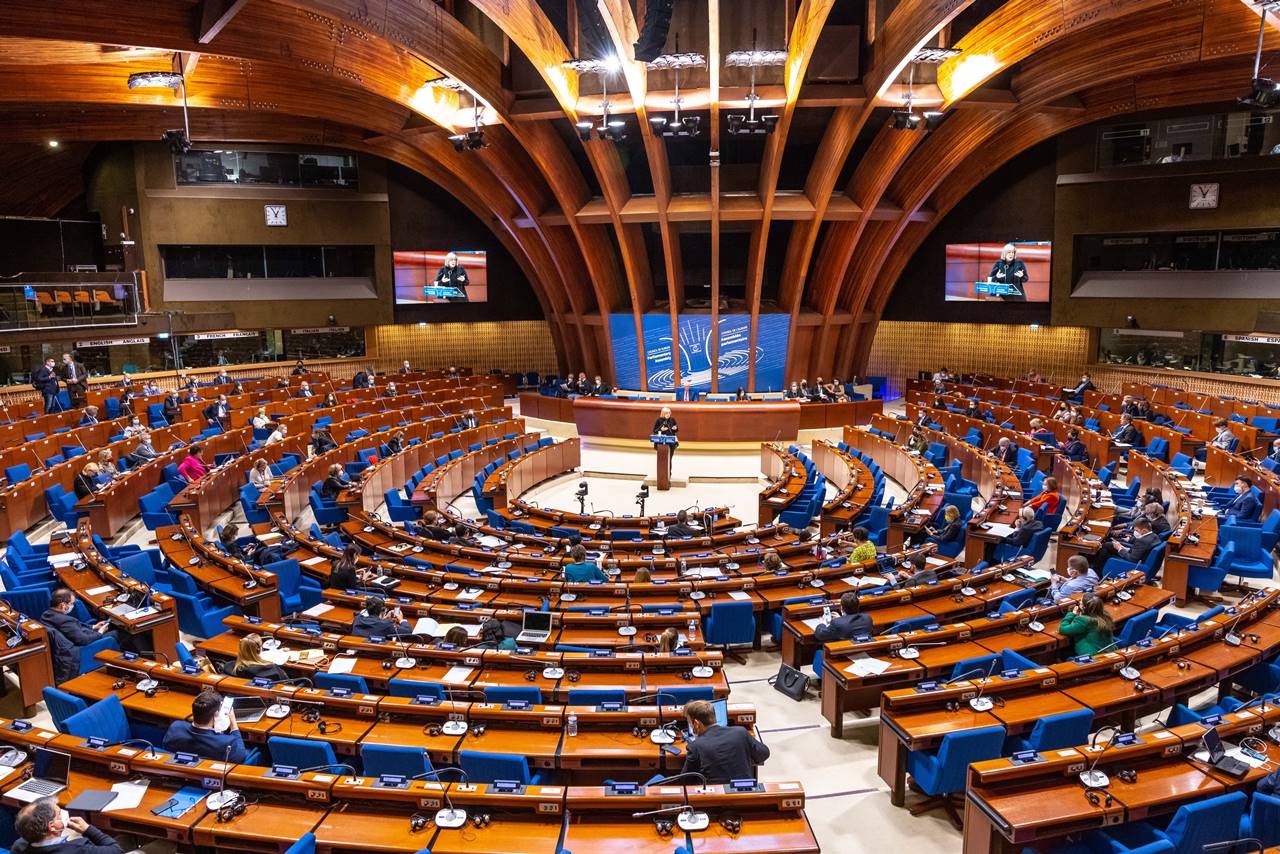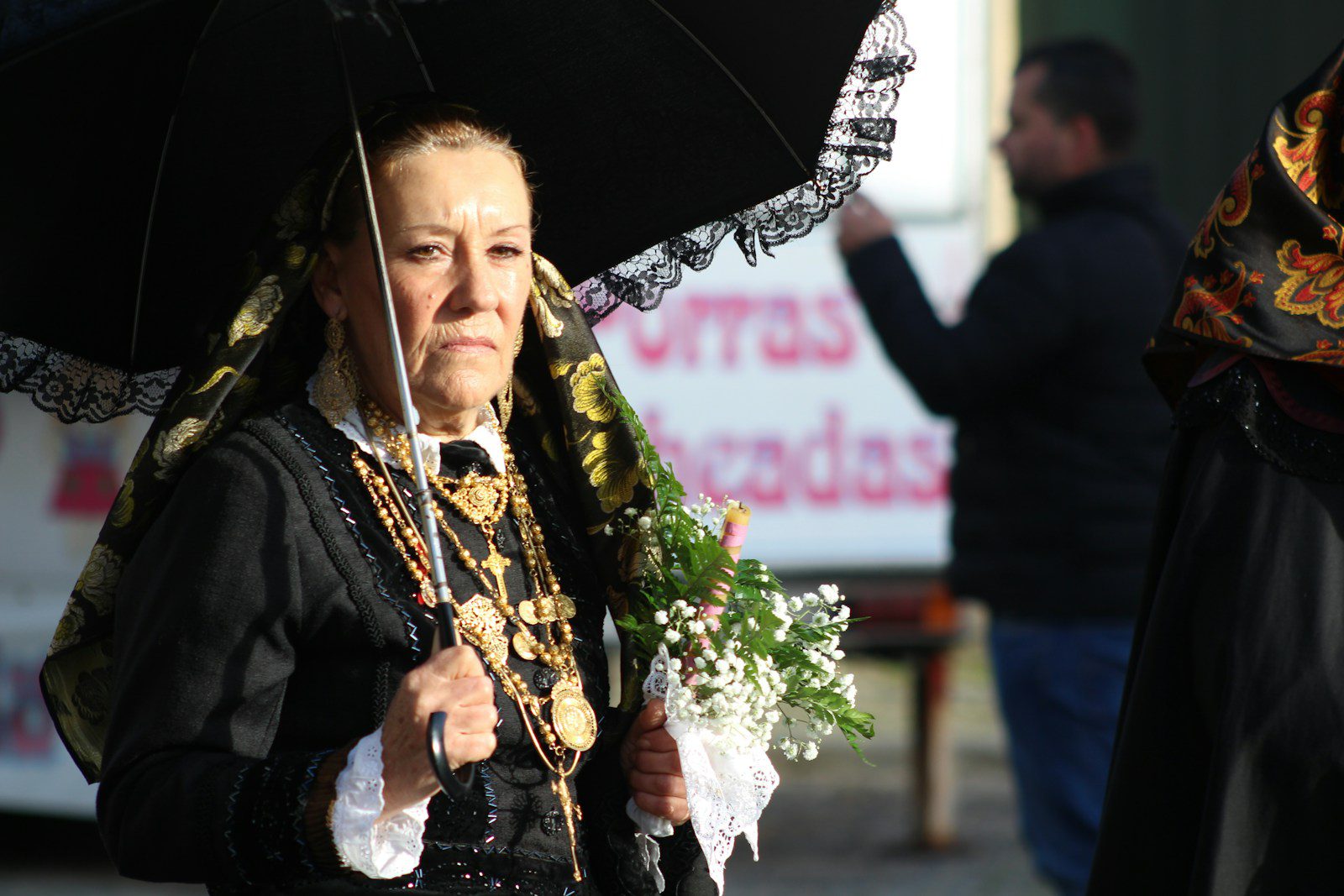Politics
France prosecutes PKK members accused of extortion and terrorism
France has put on trial 11 alleged high-ranking members of the Kurdistan Workers’ Party (PKK), accused of extortion, terrorist financing and propaganda for the organization, AFP reported.
Declared a terrorist organization by the United States, the European Union and Turkey, the PKK has waged a decades-long armed struggle against Ankara for greater autonomy for the Kurdish minority in Turkey’s southeast.
None of the 11 suspects standing trial at the Paris Criminal Court – all Turkish nationals – have admitted membership of the group, which they say has no presence in France.
However, investigators believe that France, along with neighboring EU countries, offers a place for the PKK to operate.
Organized cells are believed to operate among the 150,000 Kurdish residents of France, as well as among the 100,000 people in the Netherlands and the million-strong community in Germany.
The investigation began in 2020 when two Kurdish women, aged 18 and 19, were reported missing in southeastern France.
It soon emerged that they had gone to PKK training camps in other parts of Europe.
Untangling the thread led investigators to a network based around a Kurdish association in Marseille that they say collected a type of public tax known as a “campaign” to fund the PKK.
Testimony and wiretapping reveal harassment and extortion of members of the diaspora, as “tax collectors” assign arbitrary contributions to individuals based on their estimated income.
Some Kurds are voluntarily paying for the “campaign” out of “full agreement” with the PKK, investigators say.
But many of them see it as a “duty” that they do for fear of ostracism or reprisals from the community.
One witness says he was threatened that his legs would be broken.
Investigators estimate that around two million euros ($2.2 million) are collected each year in southeastern France.
They also investigated how young Kurds were “recruited” for the PKK in conditions “close to kidnapping and illegal imprisonment”.
All who undergo “ideological training” in Europe are sent to military-style camps, many in Iraq, and enlisted in fighting forces loyal to the PKK.
Up to 35 million Kurds, who are located on the territory of Iraq, Iran, Syria and Turkey, do not have their own state.
In France, three Kurds were shot dead in December in a Paris public center in a crime that investigators called “racist.”
The hearings are expected to continue until April 14.
Illustrative Photo by michael Bayazidi:
Politics
Access to official documents held by public authorities: Council of Europe evaluates compliance with the Tromsø Convention in 11 states

Strasbourg, 16.07.2024 – The Council of Europe’s Access Info Group (AIG), an independent group of experts created to monitor the implementation of the Council of Europe Convention on Access to Official Documents by its parties, published today its first baseline evaluation reports on 11 states: Bosnia and Herzegovina, Estonia, Finland, Hungary, Iceland, Lithuania, Montenegro, Norway, the Republic of Moldova, Sweden and Ukraine.
The reports contain comprehensive analyses of the laws on freedom of information in these states and their compliance with the Tromsø Convention. In light of its findings, the AIG makes specific recommendations to each country on issues such as the exclusion of documents containing personal data or other content from the application of these laws, and limitations to the right to access official documents.
Other recommendations concern excessive length of review proceedings in case of access denials and shortcomings in procedures for deciding on access requests, for example, excessive discretion provided to public authorities not to release the requested information or failure to provide assistance to applicants.
The convention, in force since 1 December 2020, is the first-ever binding international legal instrument to recognise everyone’s right to access official documents held by public authorities upon request.
It lays down minimum obligations for its parties to guarantee the right to access official documents, balancing the protection of the public interest in transparency with the protection of other legitimate interests, such as national security, defence and international relations.
The treaty also establishes obligations on the procedures for handling requests for information and the review of denial decisions by an independent body or a court in case of request denials.
Reports:
| Bosnia and Herzegovina | Iceland | Republic of Moldova |
| Estonia | Lithuania | Sweden |
| Finland | Montenegro | Ukraine |
| Hungary | Norway |
* * *
The Access Info Group (AIG) is a body established by the Council of Europe Convention on Access to Official Documents (also known as the Tromsø Convention) to evaluate the treaty’s implementation by the parties in law and practice and to make recommendations to fully comply with its provisions. It is composed of ten independent experts in the field of access to official documents. A second monitoring body, the Consultation of the Parties, complements its work. So far, 15 states have ratified the treaty and another six countries have signed it with a view to its ratification.
Politics
Cruelty Free Europe urges European Commission to speed up animal testing phase-out plans after stats show stalled progress

Animal protection NGO, Cruelty Free Europe, urges Ursula von der Leyen’s incoming European Commission to accelerate plans to phase out animal testing after the release of statistics for 2021 and 2022 showed that progress in reducing the number of animals used in science in the European Union has stalled.
Cruelty Free Europe are, however, pleased to see a significant decrease in the use of animals in regulatory testing (tests which prove the safety and efficacy of consumer products), which is likely to be due to an increase in the adoption of approved non-animal testing methods. This has led to a 21% decrease in the use of animals in regulatory testing since 2020.
European Commission statistics[1] show that there were 9.34 million tests on animals in the EU and Norway in 2022. This is an 8% decrease from 2021 to 2022, but the number of tests has also risen by 7% since 2020.
At 2.13 million, France carried out the most tests using animals in the EU in 2022 – a rise of 29% since 2020. Germany conducted 1.73 million tests and Norway 1.41 million (95% of which involved fish). Spain conducted 1.12 million tests on animals, an increase of 53% on their 2020 total.
These top four countries accounted for 68% of the total number of tests involving animals in the EU in 2022.
There was a small decrease in tests which were reported to have caused ‘severe suffering’, from 2020 to 2022, but a significant increase of 19% in tests which caused moderate suffering (the second highest level of pain), to over 3.71 million. Overall, the number of tests causing moderate or severe suffering to the animals involved totalled 49%.
From 2020 to 2022, there were increases in the uses of:
- Dogs – up 2% to 14,395
- Monkeys – up 5% to 7,658
- Horses, donkeys and cross-breeds– up 5% to 5,098
- Rabbits – up 8% to 378,133
- Goats – up 69% to 2,680
- Pigs – up 18% to 89,687
- Reptiles – up by 74% to 5,937
- Cephalopods (e.g., squid and octopus) – up by 65% to 2,694
There were also decreases in the uses of:
- Cats – down 15% to 3,383
- Ferrets – down 27% to 941
- Guinea pigs – down 23% to 86,192
- Sheep – down 12% to 17,542
There was a decrease in some of the tests included on the RAT (Replace Animal Tests) List[2], created by Cruelty Free Europe founder, Cruelty Free International – a list of regulatory tests that have accepted and reliable non-animal replacements and could be ended immediately. For example, the number of skin and eye irritation, skin sensitisation and pyrogenicity tests fell in 2022 but still amounted to over 55,000. Shockingly, there was an 18% increase (to 49,309 procedures) in the use of the cruel and archaic ascites method of producing antibodies, a test which causes the most severe level of suffering.
The European Commission, in response to Cruelty Free Europe’s 2020 European Citizens’ Initiative, ‘Save Cruelty Free Cosmetics – Commit to a Europe Without Animal Testing’[4], promised last year to develop a roadmap to phase-out animal testing for chemical safety assessments [3]. Last month, in partnership with a group of animal protection NGOs, Cruelty Free Europe led a meeting with key stakeholders from across the European Union as a critical step towards creating a roadmap to end animal testing in Europe.
Cruelty Free Europe’s Head of Public Affairs, Dylan Underhill, said: “These new statistics show how important it is for the European Commission to continue and accelerate its work to end animal testing in Europe. As we enter a new cycle of politics in the European Union it is absolutely vital that we build on the work that has already been done, and double our efforts to speed up progress. We urge the Commission President to press upon her incoming Commissioners the importance of the mission to phase out animal testing, and will be calling on all of them to make this issue a shared priority.
“The 1.2 million people who signed our European Citizens’ Initiative illustrated the strength of feeling that there is on this issue, and we stand ready to help the European Commission take the bold steps forward that we need to reflect public opinion. Without this, we will be condemned to a never-ending cycle of stagnation and small reductions, when what we need is transformative change.”
Politics
Equality over discrimination: history must never repeat itself – President Metsola

The European Parliament marks European Roma Holocaust Memorial Day and honours the Sinti and Roma murdered in Nazi-occupied Europe.
Today, the European Parliament joins the international community in marking European Roma Holocaust Memorial Day and remembering the 500,000 Sinti and Roma who faced atrocities in Nazi-occupied Europe.
On the night between the 2nd and 3rd of August 1944, the last 4,300 Sinti and Roma remaining in the Auschwitz-Birkenau extermination camp were murdered, with most of them being women, children and elderly people. Today, the European Parliament does not only remember the crimes committed against humanity, but also the importance of speaking up.
On this solemn occasion, the European Parliament remembers the lessons learned from the first recognition of the Roma and Sinti Holocaust, and reaffirms that Romani people must enjoy the same rights and treatment as all European citizens.
The President of the European Parliament Roberta Metsola said: “Today we pay tribute to Roma and Sinti people’s contribution to the rich fabric of our European socities. Europe must stand up for the values it holds to be true: the rule of law, democracy and equality. The moment we become complacent is the moment we allow history to repeat itself.”
80 years later, too many Romani women and men in Europe still live in the margins of society. “In our Europe, we cherish our differences, unique traditions, cultures and diversity. That means that Roma people must enjoy the same opportunities and chances as any other European citizen,” President Metsola said.
Since 2015, the European Parliament has been marking the European Roma Holocaust Memorial Day every 2nd August.
First published here.
-

 EU & the World2 days ago
EU & the World2 days agoAshanti & Nelly Welcome First Child Together & Reveal Baby Boy’s Name
-

 Politics2 days ago
Politics2 days agoPoland’s Former Prime Minister Mateusz Morawiecki Eyes Leadership of European Conservatives and Reformists
-
EU & the World2 days ago
Mike Lynch Yacht Update: Fifth Body Recovered Off Coast of Sicily
-

 EU & the World2 days ago
EU & the World2 days agoDoes Travis Kelce Appear in Swift’s ‘I Can Do It With a Broken Heart’ Music Video?
-

 EU & the World2 days ago
EU & the World2 days agoLil Jon Brings the House Down at the 2024 DNC With ‘Turn Down for What’
-
Travel3 days ago
Southern European tourists flock to Denmark to escape the heat
-
Travel3 days ago
New Brussels to Venice night train: The 9 cities en route, what it will cost and how to book
-

 Sports2 days ago
Sports2 days agoTurin, Urbano Cairo retorts to fans on Bellanova








